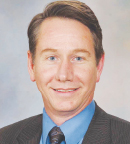
There is always concern that there’s a bit of a flash in the pan and that a drug helps but only for a short period. I think these data show that the responses achieved with nivolumab and pembrolizumab are really durable.— Stephen Ansell, MD, PhD
Tweet this quote
Stephen Ansell, MD, PhD, Chair of the Mayo Clinic Lymphoma Group, said the “exciting results” of these studies indicated that “we have come a long way in Hodgkin lymphoma.”
“It’s been very gratifying to see that the excellent initial trial results with the anti–programmed cell death protein 1 (anti–PD-1) agents have been validated in larger studies,” he added. “I think there is always concern that there’s a bit of a flash in the pan and that a drug helps but only for a short period. I think these data show that the responses achieved with nivolumab [Opdivo] and pembrolizumab [Keytruda] are really durable.”
Positioning these drugs in the setting of transplantation is “complicated,” he revealed in an interview. “It’s a bit early to make a significant call on that. Auto-transplant is curative in a high percentage of patients. I think everyone is a little concerned that we would be using a long-term therapy when instead we could use a short-term therapy and actually cure some patients. Allo-transplant is a much more complex scenario. You have a very toxic therapy on one hand and a very long-term therapy on the other. One could be curative and the other, possibly not. I think there’s lots to consider here about the benefit-risk profile.” ■
Disclosure: Dr. Ansell has a relationship with Bristol-Myers Squibb, Seattle Genetics, Merck, Celldex, and Affimed.

